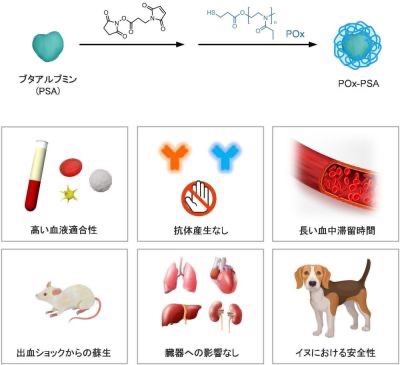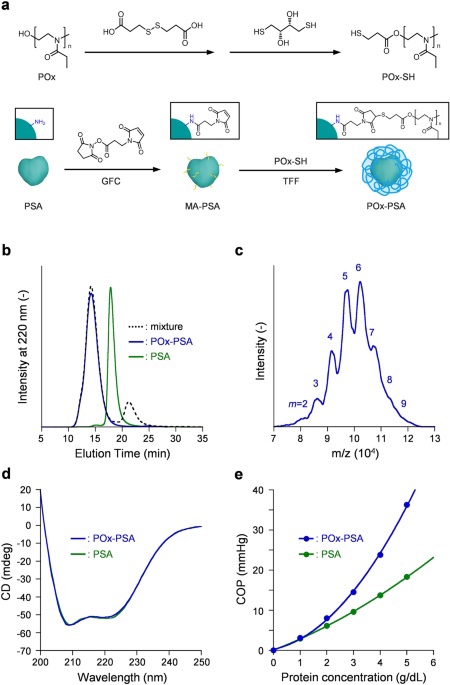
-Revolution in pet medical care, global market-
Report from Chuo University Press Release
Chuo University: Teruyuki Komatsu’s research group
Succeeded in developing artificial blood for dogs.
Blood consists of “blood cells such as red blood cells and white blood cells, and plasma in which proteins, vitamins, etc. are dissolved.”
Plasma is rich in the protein “albumin” and maintains blood osmotic pressure and circulating blood volume.
In humans: Albumin isolated from donated blood is formulated and widely used clinically.
For dogs: The raw material blood cannot be secured. There are no albumin preparations for dogs.

Polyoxazoline-bound porcine albumin (POx-PSA) solution
“Polyoxazoline conjugated porcine albumin (POx-PSA)”:
The research group bound a synthetic polymer polyoxazoline to albumin extracted from porcine plasma.
We synthesized POx-PSA and clarified that it can be used as an artificial plasma (plasma substitute) that can be administered to dogs.

Features of POx-PSA solution:
Safety and efficacy of POx-PSA solution:
In collaboration with Keio , Tokai , Saitama Medical University, and the University of Tokyo, we confirmed the safety and efficacy of the POx-PSA solution.
The results of this research were published in Scientific Reports of SPRINGERNATURE (dated June 14, 2023).
https://www.chuo-u.ac.jp/aboutus/communication/press/2023/06/66421/

Polyoxazoline-conjugated porcine serum albumin as an artificial plasma expander for dogs
Abstract
Veterinary medicine has made tremendous progress for domestic dogs, which are irreplaceable family members enriching human life.
Nevertheless, no adequate supply system exists for their blood products.
This study examined the synthesis, structure, safety, and efficacy of poly(2-ethyl-2-oxazoline)-conjugated porcine serum albumin (POx-PSA)
as an artificial plasma expander for dogs.
The aqueous POx-PSA solution showed moderately high colloid osmotic pressure and good blood cell compatibility.
Actually, lyophilized powder stored for 1 year can regenerate into a homogeneous solution.